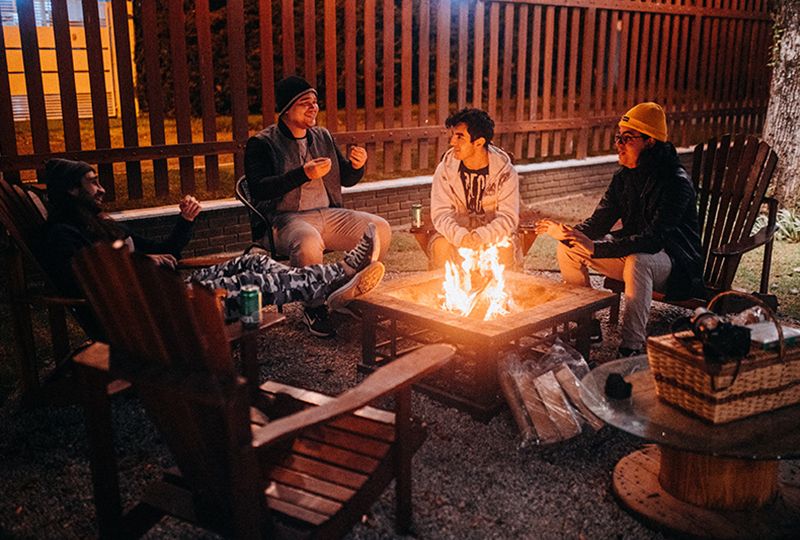How to Make Small Talk in German - A Guide to Conversing in German

Small talk is difficult in English because there are so many considerations before you try to engage in a conversation. And that’s when you know the language well. Trying to engage in small talk in a language you are learning with people who aren’t inclined to small talk can seem like a monumental task.
Although it may not seem important, small talk can be incredibly beneficial, especially when you are learning a new language. It provides easy topics with vocabulary words you probably know. It isn’t high stakes, and people will be able to more easily correct you.
Still, there is a perception that Germans don’t engage in small talk. It is true that there are Germans who consider small talk a waste of time. However, Germans aren’t the only nation that speak German. Both Switzerland and Austria are big enough that you may be able to find German speakers who are more willing to engage in this low stakes conversation.
It does remain easy to find Germans who are willing to make small talk. What you need to keep in mind is that they do tend to be blunter, so when you ask a question, there are pretty good odds that the answer you get is going to be far from what you expect for small talk.

An Aversion to Oberflächliche Konversation
Germans call small talk oberflächliche Konversation, or superficial conversation. This definitely comes across as being a more negative phrase than the idea of small talk since superficial has largely negative connotations today.
It isn’t the small talk itself that Germans are really averse to, it’s pointless talking. As long as there is a purpose to a conversation, Germans tend to be more open. If you walk past a German and ask them “What’s up?” or “How are you doing?” they will expect you to stick around to hear the answer. The fact that most English speakers seem to use this as a way of saying “Hello” is somewhat baffling to Germans because the words and the intention clearly don’t align.
Conversations are supposed to be just that – conversations. If you ask a question, Germans expect you to actually care about the answer. The kinds of questions that are considered essential niceties in English aren’t necessary in German. And if you stop to think about it, they aren’t really niceties in English. Why do we ask people how they are and expect a pleasant answer? When people speak honestly, we tend to get upset about having to hear a real answer. We don’t want that.
Well, that’s the problem the Germans have. If you don’t want an honest answer, don’t ask a question.
Really, it’s a matter of knowing what questions to ask and what topics will get a German talking.

Benefits of Taking the Time to Learn Small Talk
As mentioned in the beginning, there are some real benefits to learning how to engage in small talk with a German speaker. The topics aren’t going to require a robust vocabulary. This means that you’ll be able to talk more easily without feeling like you are floundering so often. When you have a topic that is engaging to you and the other person, you can actually get more help in learning more about the subject.
Just like in English, small talk in German requires smaller, shorter sentences. This makes it easier to formulate sentences as you speak. This can be a huge confidence booster as you have a greater chance of making it through the conversation.
German speakers tend to respect people who aren’t native speakers and are attempting to learn their language. They know that German isn’t a particularly easy language to learn, so they appreciate people actually making an attempt. Small talk may not be something they enjoy doing, but many of them will engage when they know that you are trying to speak in their language. This is probably why they are also more likely to help you – they like it when people want to speak their language.
Finally, small talk still does have its place, especially when you don’t know someone. A conversation that is small talk is still a good starting place to break the silence or when you are getting to know someone on a small level. It can act as an ice breaker or a way warm up a room before a meeting.

Getting Started with Small Talk
The best place to start is with the common phrases. Be prepared for a different response than the ones you get from English speakers though. If you ask a question, be prepared for a more honest answer. Look at the kinds of response that are usual, and then you can respond in the same way if someone asks you the questions.
Review all of the small talk vocabulary, particularly for things like traveling, weather, and hometowns. Just be prepared for questions directed to you that ask for numbers or details. If you drove somewhere, what was the distance to reach your destination? What roads did you take? Did you have to refill your gas tank, and how much did it cost? If you are talking about hometowns, be ready with a rough estimate of how many people live there, where it is in relation to a larger city (if you don’t come from a large, well-known city), and other details that are largely statistics based.
This is really the difference between German small talk and most others. They are interested in numbers, statistics, and factual details. These things are unquestionable and provide some kind of purpose to the conversation – at least they will be walking away knowing some facts about your experience.
Study up on any subject that interests you or that you may want to talk about with others. Sports, hobbies, traveling, and hometowns tend to be fairly safe, and those are subjects you’ll probably want to discuss. They may have a trickier vocabulary, but that’s what makes these subjects great for small talk – people will be more than happy to help you through the conversation because they may be eager to discuss them too.

The Weather – A Reliable Standby
Even the Germans will engage in conversations about the weather. And they will complain just as much as anyone else when there has been any kind of excessive weather -related event. You’ll be able to commiserate about it being too hot, too cold, too dry, too wet, too snowy, or anything else that isn’t a perfect condition.
Take the time to learn some weather phrases that are relevant to what is happening in Germany when you travel there. You can always open with “Wie ist das Wetter?” or How is the weather? But it will be more impressive if you are able to start with something more concrete, such as your opinion on the weather.

Topics That You Should Avoid
All cultures have taboo topics, including Germany. They prefer to keep their private lives private; that is not a topic they want to use for small talk. Avoid asking them about anything too personal, allowing them to bring it up when they feel comfortable enough to talk about it after knowing you for a while.
Politics and money also tend to be subjects that are not small talk friendly. Is there any language where these are good conversation starters? This is really something you save for talking about with people you care about, not some stranger.
Fortunately, you probably aren’t going to have the vocabulary for these subjects anyway, so it should be easy to avoid them.

Don’t Be Afraid to Engage
Germans don’t really have a problem with small talk. The difficulty is more because of the way English speakers approach it. Whether you are looking for a conversation partner online or are traveling to a German speaking country, building up your vocabulary and phrases in small talk topics to start breaking the ice. As long as you remember that every conversation should have a point and be an exchange of information – not just a way to fill the silence – you can learn a lot from engaging in conversation. Many German speakers will actually be more than happy to help you work on your German.
